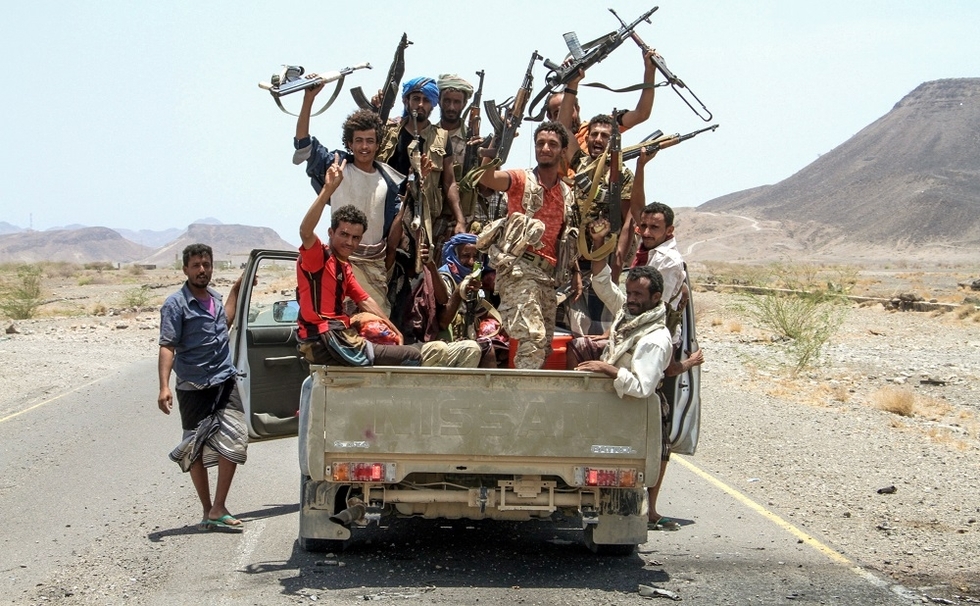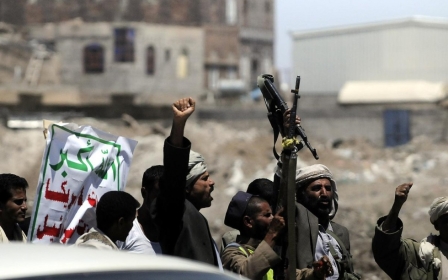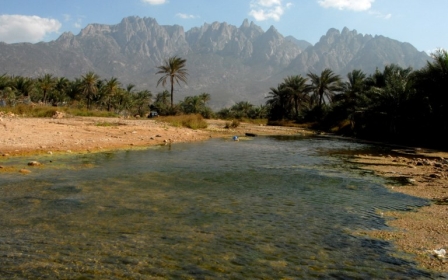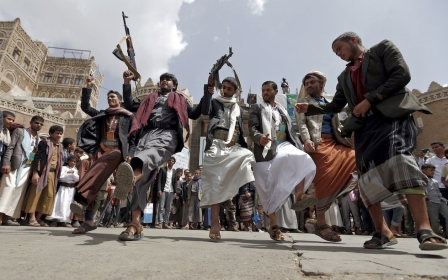Hodeidah fighting forces tens of thousands of Yemenis to flee, says Amnesty

Tens of thousands of Yemenis have been fleeing Hodeidah as fighting intensifies on frontlines near the Houthi-held western province, Amnesty International said on Thursday, warning that "the worst is yet to come" if the war reaches urban areas.
Forces backed by a Saudi-led military coalition are advancing towards Hodeidah port city, long a key target in the three-year-old war, though local officials told Reuters this week they do not plan to launch an assault on densely populated areas nearby.
'The human impact is clear from the distressing stories shared by civilians displaced by the conflict'
- Rawya Rageh, Amnesty
The United Nations puts the number of displaced along Yemen's western coast in recent months at some 100,000 people, most of them from Hodeidah, the second-most populated province, the rights group said.
"The human impact of this fresh military offensive on Yemen's western coastal areas is clear from the distressing stories shared by civilians displaced by the conflict," said Rawya Rageh, Amnesty's senior crisis response adviser.
"It is a glimpse of what potentially lies in store on a wider scale if the fighting encroaches on the densely populated port city of Hodeidah."
Hodeidah handles the bulk of Yemen's commercial imports and critically needed aid supplies. The Western-backed alliance accuses the Houthis of using the port to smuggle in Iranian-made weapons, accusations denied by the group and Tehran.
The renewed push towards the port is taking place amid increased tensions between Saudi Arabia and regional arch-foe Iran, which are locked in a proxy war in Yemen that has killed more than 10,000 people, displaced three million and pushed the impoverished country to the verge of starvation.
Civilians from Zabid, al-Jarahi, Hays and al-Khoukhah, about 100km south of Hodeidah city, told the rights group that they and many others fled to the southern port city of Aden, where the internationally recognised Yemeni government has a presence.
The majority of those interviewed said they could only fund the trip by selling their belongings, according to Amnesty.
One woman had a miscarriage upon arriving in Aden after what she described as a terrifying and exhausting journey, the group said, adding that the normally six-hour drive now takes three days due to checkpoints, landmines and other hazards.
Survivors have also said Saudi-led coalition air strikes had killed civilians, leaving them in constant fear for their lives.
'We left because of the bombardment and the war around us. Every day people would die, every day we would see ripped bodies around us'
- Amnesty witness
Hassan, a 26-year-old fisherman, told Amnesty: “We left because of the bombardment and the war around us. Every day people would die, every day we would see ripped bodies around us, blown to smithereens.
"Can we stay there? We had to leave to escape alive. We couldn’t live in such danger.”
Amnesty said refugees had told them battle lines were constantly shifting as government and Houthi forces take control of different areas, meaning civilians caught in the middle faced a range of violations of international humanitarian law by both sides.
Houthi fighters have repeatedly fired imprecise mortar bombs into civilian areas, the group said, which on one occasion hit a hospital courtyard on 25 March, wounding a 13-year-old boy and killing a pharmacist and a nurse.
Houthi forces have also endangered civilians by basing troops and vehicles in civilian areas, Amnesty said, while also expelling people from homes in previously government-controlled areas.
Middle East Eye propose une couverture et une analyse indépendantes et incomparables du Moyen-Orient, de l’Afrique du Nord et d’autres régions du monde. Pour en savoir plus sur la reprise de ce contenu et les frais qui s’appliquent, veuillez remplir ce formulaire [en anglais]. Pour en savoir plus sur MEE, cliquez ici [en anglais].





